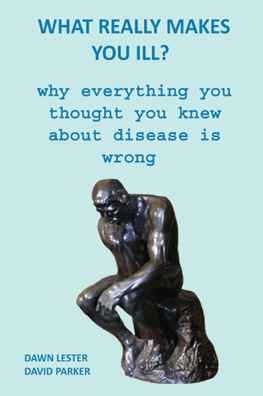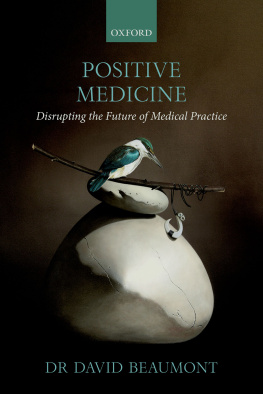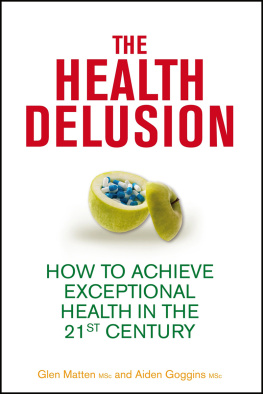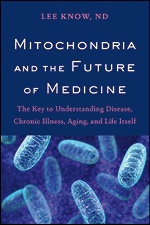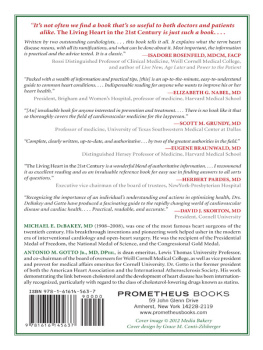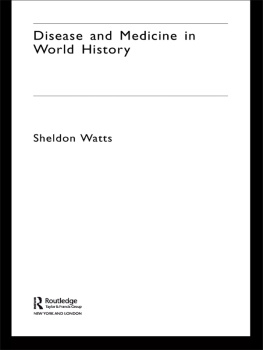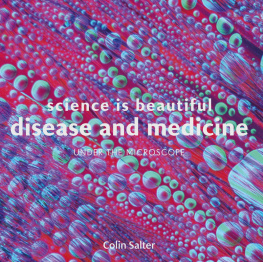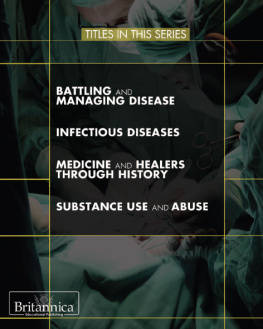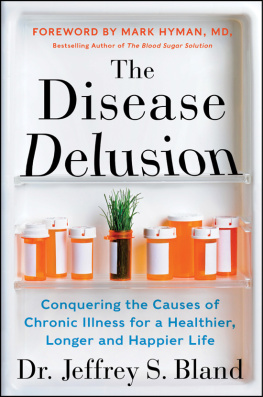What Really Makes You Ill?
Why Everything You Thought You Knew About Disease is Wrong
Dawn Lester & David Parker
Copyright 2019 Dawn Lester & David Parker
All rights reserved. No part of this publication may be reproduced, distributed, or transmitted in any form or by any means, including photocopying, recording, or other electronic or mechanical methods, without the prior written permission of the authors, except in the case of brief quotations embodied in critical reviews and certain other non-commercial uses permitted by copyright law.
DISCLAIMER : Healthcare in the early 21st century is almost completely controlled by vested interests, which claim that their system, known as modern medicine, is the only genuine form of healthcare and that all other forms are to be regarded as pseudoscience and quackery. The consequence of this control is that we, the authors of this book, are under a legal requirement to state that we are not medical doctors. In addition, we are obliged to state that, even though its contents have been obtained from professional and reliable sources, this book is intended to serve as an informational guide; its core purpose is to assist people to make truly informed decisions about their healthcare.
This book is dedicated to all those who seek truth
An error does not become truth by reason of multiplied propagation, nor does truth become error because nobody sees it.
Mahatma Gandhi
Unthinking respect for authority is the greatest enemy of truth.
Albert Einstein
Contents
Introduction
Doctors are men who prescribe medicines of which they know little, to cure diseases of which they know less, in human beings of whom they know nothing. Voltaire
The natural state of the human body is that of good health.
Yet it would appear to be rather difficult to maintain the body in the state of good health throughout a persons entire lifetime.
Although illness may seem to be a common human experience, it can manifest in a variety of different forms and to varying degrees of severity; the common cold, for example, is self-limiting and short-lived, whereas many chronic conditions, such as rheumatoid arthritis, are considered to be incurable and lifelong. It may be assumed from this that illness is largely unavoidable or is even an inevitable aspect of human life; but this would be a mistaken assumption, as this book will demonstrate.
Nevertheless, the fact that large numbers of people experience some form of illness during their lives raises some fundamental questions, not least of which is: why does it occur? In other words, what really makes people ill?
The usual responses to such questions refer to two interrelated ideas, both of which are widely believed to be fundamental truths. The first of these ideas is that illness occurs because a person has contracted a disease of some description. The second is that each disease is a distinct entity that can be identified by the unique symptoms it produces within the body. This book will also demonstrate that these ideas are not truths.
The conventional approach to illness adopted by virtually all systems of healthcare is one that employs remedies, or medicines, that are claimed to alleviate or bring an end to a patients symptoms. This approach is based on the idea that the cessation of symptoms indicates that the disease has been defeated and that this successful outcome has been accomplished solely by the medicine. However, despite their common approach, different healthcare systems employ the use of different types of medicine in the treatment of human disease; these medicines may take the form of natural substances or products derived from natural substances, or they may be in the form of products manufactured from synthetic chemical compounds.
The use of medicine to treat human disease is encapsulated by the quote attributed to Voltaire, the nom de plume of Franois-Marie Arouet (1694-1778), that opens this Introduction. However, most people will no doubt consider the 18th century idea that doctors have little or no knowledge about medicines, diseases and the human body to have no relevance to the 21st century. It is highly likely that this viewpoint will be based on the notion that medical science has made significant advances in the past three centuries and that 21st century doctors therefore possess a thorough, if not quite complete, knowledge of medicines, diseases and the human body. This book will demonstrate otherwise.
The advances made in the field of medical science have been incorporated into the healthcare system known as modern medicine, which is claimed to be the only system of evidence-based medicine that has a solid foundation in science. The idea that modern medicine is the best and most advanced scientific form of healthcare has been used as the justification for its promotion as the only system to be implemented by the governments of all countries around the world.
I t is because modern medicine is claimed to be the only system capable of delivering genuine healthcare that it forms the main focus of this book. However, as the ensuing discussions will demonstrate, this claim is unfounded. They will also demonstrate that virtually all of the information about disease promulgated by the medical establishment is erroneous and that the reason for this is because it is based on ideas and theories that are fundamentally flawed. The flawed nature of these ideas and theories means that the words of Voltaire remain applicable to the 21st century medical system known as modern medicine; a system that continues to operate from the basis of a poor level of knowledge about medicines, diseases and the human body.
The term medical establishment is used in this book to refer to all of the people, organisations, industries, and academic and research institutions that practise, research, teach, promote and otherwise support the system of modern medicine.
It is a truism that a problem can only be solved if it has been thoroughly understood and its root causes have been correctly identified, because problems only cease to exist when their causes have been removed; a truism that inevitably applies to the problem of illness. Yet illness not only continues to exist, it also continues to worsen for large numbers of people, despite the treatments and preventives employed by modern medicine.
The logical, and correct, conclusion to be drawn from this is that modern medicine has failed to thoroughly understand the nature of the problem and has similarly failed to correctly identify all of the root causes. The consequence of these failures is that the measures employed by the medical establishment are entirely inappropriate as solutions to the problem of disease. Although claimed to treat and prevent disease, these measures, which are usually comprised of pharmaceutical products, do not remove their causes, they therefore cannot solve the problem; but more worryingly, these products invariably exacerbate the problem.
The failings of modern medicine with respect to disease are solely due to the flawed nature of the theories on which its practices have been based.
This statement will, no doubt, be regarded by the vast majority of people as highly controversial; but that does not deny its veracity. It is requested that, whilst reading this book, readers bear in mind the following saying that is attributed to the German philosopher Arthur Schopenhauer (1788-1860),
All truth passes through three stages. First it is ridiculed. Second, it is violently opposed. Third, it is accepted as being self-evident.
In addition to revealing the flawed nature of the ideas and theories of modern medicine, the discussions within this book will explain the real nature and causes of disease and provide readers with information to enable them to make informed decisions and take appropriate actions for the benefit of their own health.
Next page
